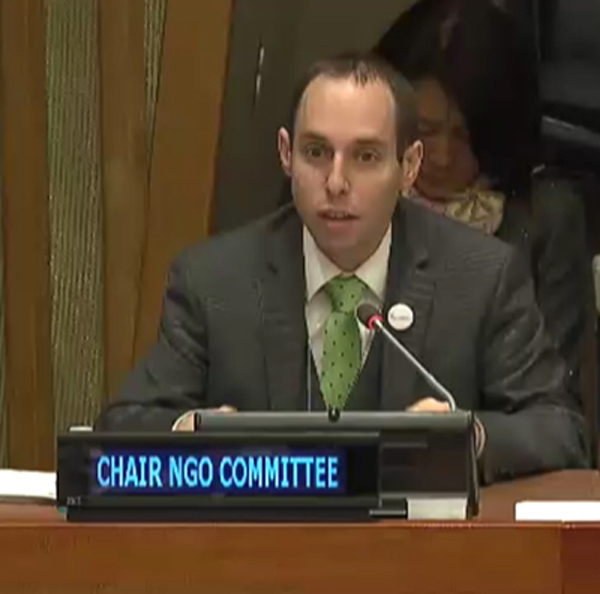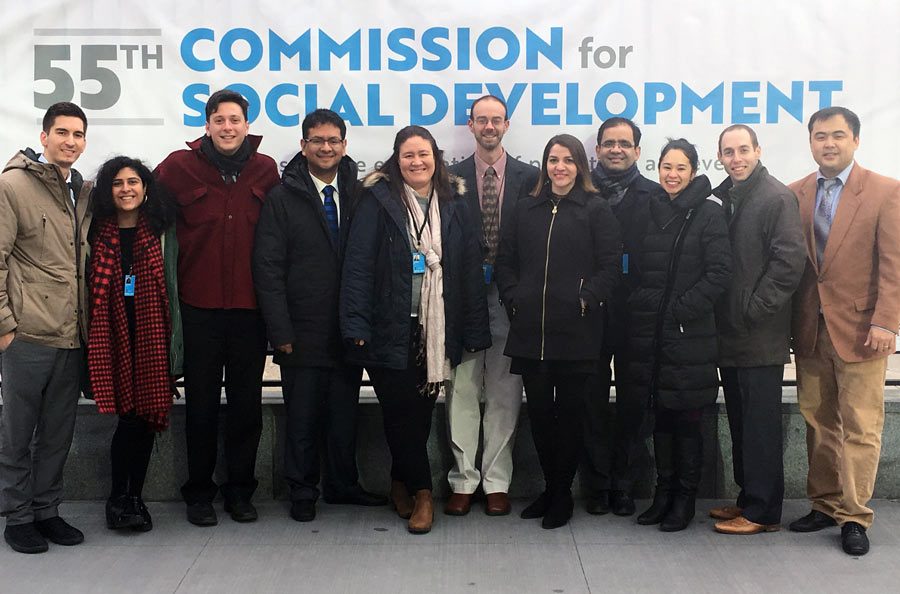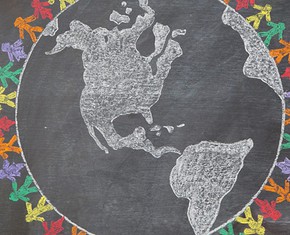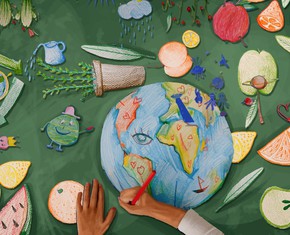Baha’is believe that global aid agencies must see the populations they work with as protagonists of their own advancement.
This message formed part of the opening address of a representative of the Baha’i International Community at a recent conference on social development at the United Nations.

Daniel Perell speaking at the 55th UN Commission for Social Development.
“Relationships of mutual support and assistance will increasingly be seen as our greatest source of strength,” said Daniel Perell, Baha’i International Community (BIC) representative and NGO Committee for Social Development chairperson, in his opening remarks on 1 February 2017 at the 55th UN Commission for Social Development in New York.
“Whether wealthy or poor, rural or urban, a doctorate or illiterate, we all depend on each other, and we all have much to learn about a functioning society,” Mr. Perell continued.
The idea that all populations have the capacity—and the agency—to contribute to their own development constituted one of the central themes of a statement shared by the BIC at the UN Commission.
The BIC statement notes that while international aid organizations increasingly acknowledge the “agency of low-income communities,” the people in them are “rarely embraced as capable and equal partners in a collaborative enterprise.”
It is “vital for the United Nations system to develop its ability to see capacity and strength in populations that, at times, may have been given labels such as ’marginalized,’” reads the statement.
The statement reflects the basic Baha’i principle of the elimination of the extremes of wealth and poverty; and stresses the Baha’i ideal of a major reconstruction of society gained through the empowerment of every member of every community:
… the suffering of the poor is a cause of profound concern for all Baha’is, and indeed for all thinking people. It is a problem which has vexed mankind from the time of the dawn of history. The great question is how to solve this problem. It cannot be overcome merely by the gift of money. It requires a major reconstruction of society, spiritually, morality and economically, and it is this reconstruction that Baha’u’llah has called on humanity to undertake. …
This community and its individual members work also to develop the social and economic conditions of the society around them, empowering the poor and disadvantaged to raise themselves to higher levels of prosperity and well-being. They also strive to associate in constructive activities with all people. – The Universal House of Justice, February 2002.
Bita Correa, a member of the BIC’s delegation to the Commission, noted in particular the role that youth can play in building communities when their contributions are supported and encouraged.

The BIC delegation to the 55th Commission for Social Development. Left to right: Aaron Dahm, Yasmin Roshanian, Eric Farr, Rodrigo Lemus, Bita Correa, Mark Scheffer, Nava Kavelin, Arash Fazli, Saphira Rameshfar, Daniel Perell, and Serik Tokbolat.
Ms. Correa shared the example of the work of FUNDAEC (Fundacion para la Aplicacion y Ensenanza de las Ciencias), a Baha’i-inspired agency in Colombia.
In her remarks at an event hosted by the BIC on the topic “Rising Generations: Youth as Drivers of Prospering Communities,” Ms. Correa told the story of a group of young people on the north coast of Colombia who undertook a service project to promote better practices in garbage and waste disposal-an effort that ended up transforming the habits of their entire community.
These youth had been engaged in a study program that emphasized their own agency, stressed the importance of learning together, and encouraged projects of service to the whole community. They decided to focus on environmental issues, and over a period of six months, they analyzed the patterns of consumption in the community, identifying specific measures they could take to address the issue. Ultimately, said Ms. Correa, this lead to the community re-organizing its entire approach to the matter, thanks to the initiative and example of young people.
“One thing we have observed in the various programs that are being offered by the Baha’i community worldwide has been the willingness and energy with which youth have engaged when given the chance,” she said. “They want to participate. They want to see that their actions actually have an impact.”
















Comments
Sign in or create an account
Continue with Googleor